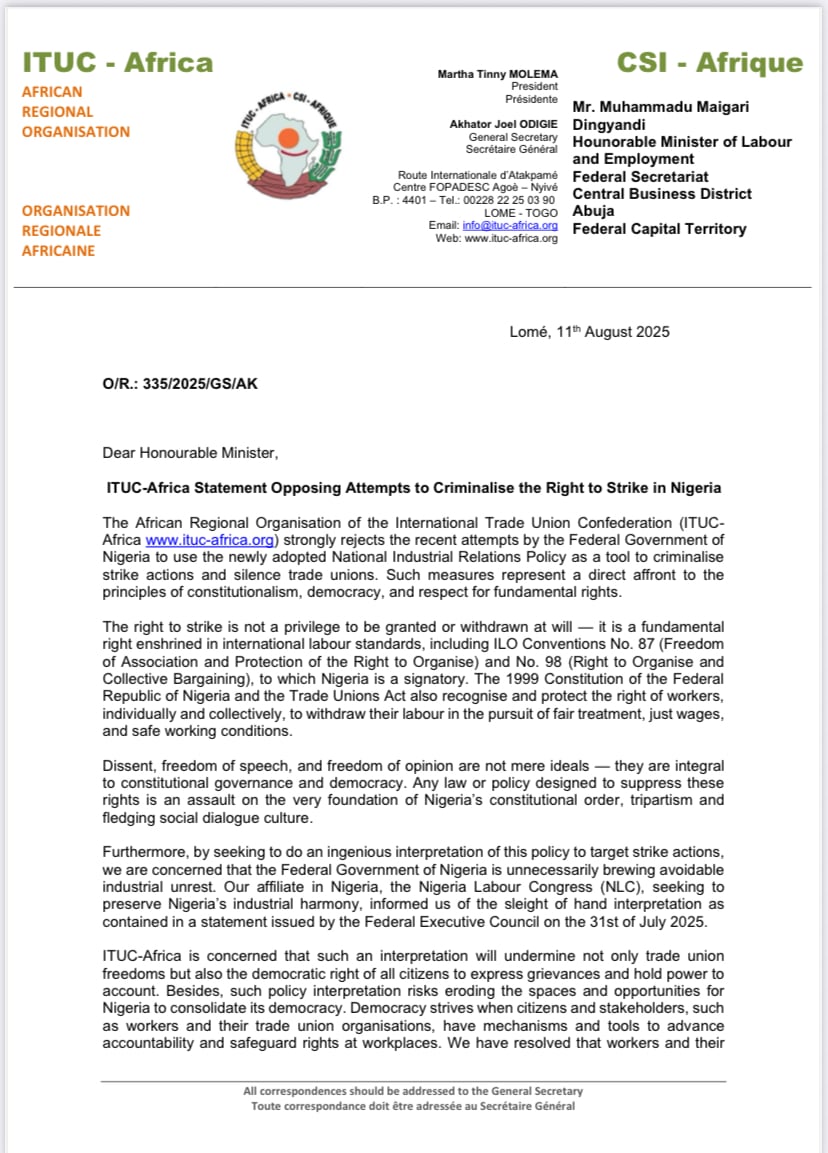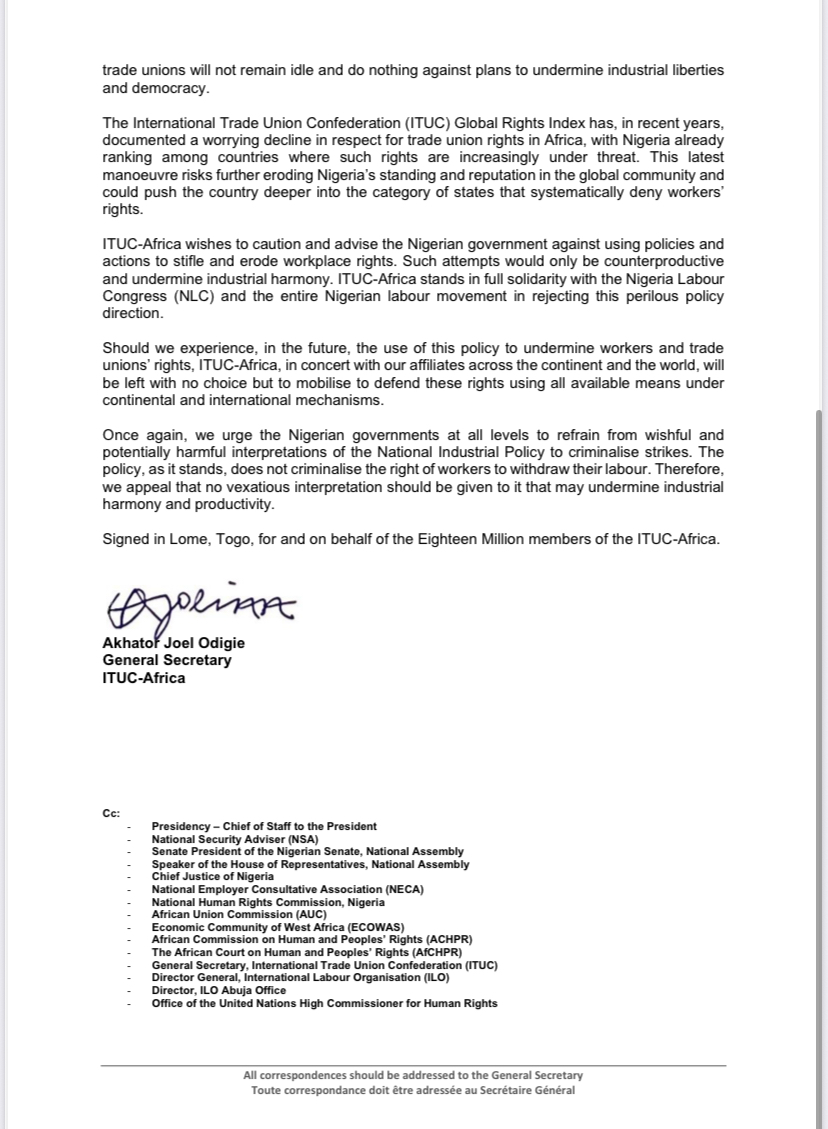
International Trade Union Condemns Nigerian Government’s Move to Criminalise Right to Strike

The African Regional Organisation of the International Trade Union Confederation (ITUC-Africa) has issued a statement condemning the Nigerian government’s alleged attempt to criminalise the right to strike through its newly adopted National Industrial Relations Policy.
In a letter dated August 11, 2025, addressed to Nigeria’s Minister of Labour and Employment, Mr. Muhammadu Maigari Dingyandi, ITUC-Africa expressed “strong rejection” of what it described as a “sleight of hand” interpretation of the policy, warning that it undermines democracy, industrial liberties, and constitutional rights.
The right to strike is not a privilege to be granted or withdrawn at will, it is a fundamental right,” the statement reads, citing the ILO Conventions 87 and 98, to which Nigeria is a signatory, as well as Nigeria’s 1999 Constitution, which enshrine this right.


The union confederation, which represents 18 million workers across Africa, expressed deep concern that the policy could be misused to silence trade unions and suppress legitimate labour actions.
This is an assault on the very foundation of Nigeria’s constitutional order, tripartism, and fledgling social dialogue culture.
The controversy stems from a July 31, 2025, statement by Nigeria’s Federal Executive Council, which, according to ITUC-Africa and its affiliate, the Nigeria Labour Congress (NLC), signals a dangerous shift in how the government interprets the right to strike under the new policy.
Warning of possible industrial unrest, ITUC-Africa accused the government of risking Nigeria’s already precarious standing in the ITUC Global Rights Index, where it is listed among countries with worsening labour rights records.
“Workers and their trade unions will not remain idle and do nothing against plans to undermine industrial liberties and democracy,” the statement reads, further warning that any future use of the policy to restrict strikes would prompt a coordinated response from trade unions across Africa and globally.
In a pointed appeal, ITUC-Africa urged Nigerian authorities to “refrain from wishful and potentially harmful interpretations” of the policy, noting that the document, in its current form, does not criminalise strike action.
It will be recalled that the Nigeria Labour Congress (NLC) had earlier rejected the newly adopted National Industrial Relations Policy announced by the Federal Government, describing it as an attempt to criminalise strikes and silence trade unions.
In a statement signed by NLC President, Comrade Joe Ajaero, on August 1, 2025, the union condemned the government’s focus on stopping frequent industrial actions as “very reprehensible,” stressing that the right of workers to withdraw their services is protected by the 1999 Constitution and the Trade Unions Act.
The policy, unveiled at the Federal Executive Council (FEC) meeting on July 31, 2025, was criticised by the NLC for singling out strikes from “hundreds of workplace issues” as its primary target.
The union further noted that during the policy’s development, there were attempts to insert clauses that would criminalise strikes. Still, these proposals were rejected by trade unions, employers, and representatives of the Federal Ministry of Labour for being inconsistent with the Constitution and international labour standards.
Read Also: Burkina Faso Unveils First 155 Buses To Support Nationwide Transport Modernisation Drive
About The Author
Related Articles
Tinubu Deducts N100bn Monthly From Federation Account Without Approval El-Rufai Alleges Says Action Deserves Impeachment
Former Kaduna State Governor Nasir El-Rufai has launched a blistering attack on...
ByWest Africa WeeklyJanuary 26, 2026After Taiwo Oyedele’s Denials, Lagos State Activates ‘Power of Substitution’ Under Tinubu-Altered Tax Law, Allowing Authorities to Redirect Payments Without Court Orders
Lagos State has moved to activate a controversial enforcement provision in the...
ByWest Africa WeeklyJanuary 26, 2026Ivory Coast to Buy Unsold Cocoa to Support Farmers
Ivory Coast has announced a government plan to purchase unsold cocoa stock...
ByWest Africa WeeklyJanuary 23, 2026Ghana Moves to Reclaim Kwame Nkrumah’s Former Residence in Guinea
Ghana has embarked on a diplomatic and cultural initiative to reclaim the...
ByWest Africa WeeklyJanuary 23, 2026












Leave a comment